Posted by Danny Ghorbani – MHARR
Sprinkler Mish-Mash Designed to Mislead Industry
HUD Takes Shot at Industry, Consumers and Defies Congress
Unexplained Delays Continue on Financing – Suspicion Grows
Sprinkler Mish-Mash Designed to Mislead Industry
Grassroots industry concern over the erosion of federal preemption is wellfounded, as a combination of HUD regulators, industry enablers and research consultants continue to press yet another backroom “deal” — this time on fire sprinklers. This is another example of the type of ill-advised industry “compromise” on key issues – while most grassroots industry members are kept in the dark or provided misleading information – that has devastated the industry in Washington, D.C.
Supporters of an across-the-board residential fire sprinkler mandate, largely frustrated so far in their efforts to have the fire sprinkler requirement of the latest International Residential Code (IRC) adopted at the state and local level, who have long seen the HUD Code industry as easy prey due to its weakness in Washington, D.C., continue to target manufactured housing for a sprinkler standard that could be imposed nation-wide by HUD in one stroke of the pen and used, ultimately, as a foot in the door, to pressure states and local jurisdictions to mandate sprinklers for all housing.
HUD regulators have already done their part for this effort by letting it be known, without issuing a formal ruling, that state and local sprinkler standards would not be preempted by the current HUD fire safety standards, notwithstanding the enhanced preemption instituted by Congress as part of the Manufactured Housing Improvement Act of 2000. And now, the usual enablers within the industry are promoting a preemption “study” by industry consultants (whose work has previously been turned against the industry by special interests to advance costly new standards and requirements) and a federal manufactured home fire sprinkler standard that, supposedly, would only apply in jurisdictions where sprinklers are already mandated for all residential dwellings.
Concerning a “study,” no one in the industry is apparently asking “study what?” and “why?” The facts concerning preemption are quite clear. A “study,” at this point would only serve to complicate this issue, while increasing doubts and confusion within the industry and wasting limited industry resources and funds.
Even worse, a “defensive” federal standard would expose the industry to the worst of all worlds. As MHARR has written before, sprinkler mandates should be preempted under the 2000 reform law which requires HUD to “broadly and liberally” interpret and apply federal preemption. If, HUD, though, wrongly insists on taking the position that they are not, then HUD should stay out of the matter entirely, and the industry should work to keep it out. Instead, the industry should continue to work – as part of a broad coalition encompassing all other segments of the housing industry — to stop or modify this sweeping mandate on a state-by-state and jurisdiction-by-jurisdiction basis. Where the relevant authorities agree — as many thus far have — the matter is resolved. Where they insist on a sprinkler mandate for all dwellings, the NFPA 13D standard should be used to build such homes, as it specifically addresses the unique aspects of manufactured housing. This approach could ultimately protect the industry in most areas of the country without undermining preemption and without forcing manufacturers to install sprinklers in all homes regardless of their destination.
The rest of the industry, however, having accepted, without any push-back, HUD’s premise that there is no preemption, wants to conduct a “study” — on an issue that has a long, clear and extensive record – as a fig-leaf for a “compromise” that would saddle the industry with a “defensive” federal sprinkler standard. Such a standard, however, would invite chaos for the industry and its consumers, give HUD regulators control over this issue without any accountability, and leave the industry in a preemption “no-man’s land,” caught in limbo as disputes inevitably develop between the states, localities and HUD over exactly what is or is not preempted and who has authority over what, including enforcement and penalty authority. Moreover, this type of infighting, leaving the industry and its consumers caught in the middle, is completely predictable, because the same disputes have occurred — and continue — over on-sight completion, where HUD’s distinction (‘, the Department’s infamous “re-codification”) between construction and installation has muddied the scope of federal preemption.
Industry complicity in such a federal standard would validate HUD’s rejection of the enhanced preemption that the industry worked so hard to achieve in the 2000 reform law, and that would just be the start. It would undermine ongoing efforts to stop the IRC mandate at the state and local level, and hand proponents of that mandate a significant national victory. It would be subject to expansion and abuse by HUD regulators and contractors who consistently over-state, over-reach, over-extend and over-enforce every IHUD Code standard, regulation, policy, practice and “interpretation” on the books without regard to cost. It would open the door to expansion at the state and local level too, including efforts to require community owners to retro-fit existing homes en mass.
Further, inviting a such a “defensive” standard out of fear of something worse — and a lack of resolve — would open the door to yet more unreasonable demands by other similar special interests with an agenda to advance. This kind of “sky is falling” scare tactic has been used time and again by half of the industry in Washington, D.C. as an excuse for doing nothing — or worse – and has consistently backfired on the industry and its consumers. Besides, there would be no guarantee that a future HUD administration would not ultimately extend this “defensive” standard to all manufactured homes – new, lived-in, or both – everywhere.
To the extent that HUD says it does not preempt sprinklers, this (and any other) back-room deal would result in yet another crushing blow for the industry, both shortterm and long-term. Accordingly, the industry in Washington, D.C. and the state associations should reject a cave-in that sacrifices the industry’s position on preemption, and work to address this matter together with the other segments of the housing industry.
HUD Takes Shot at Industry, Consumers and Defies Congress
Pressed by a growing number of inquiries from members of Congress expressing concern over the accelerating deterioration of the industry and consumers’ ability to obtain financing for manufactured home purchases, HUD has issued a response that is remarkable in its contempt for the industry, its homes, consumers and Congress itself.
The January 11, 2010 response rejects calls from Congress for the appointment of a non-career Administrator for the federal program, as provided by the Manufactured Housing Improvement Act of 2000. The response, goes much further, though, exposing a deepening institutional rejection of manufactured housing itself, including the availability of financing for HUD Code consumers and the proper implementation of key aspects of the 2000 reform law. Instead, the response reflects an approach to the HUD program that is a throw-back to the 1980’s and 1990’s, where program regulators and contractors will effectively have a blank check from senior management regarding the standards and their enforcement. This blank check will also allow the further politicization and polarization of the program, as has been evident in recent years, where the interests of the industry’s smaller businesses are pitted against a handful of larger companies in a range of matters relating to the HUD program and access to means of financing.
To address this HUD response and enable further action by grassroots industry members to engage Congress on these critical issues, MHARR has produced and distributed to industry members a January 25, 2010 packet which includes HUDYs January 11, 2010 response, the December 2, 2009 letter from Congress that HUD responded to and a point-by-point analysis of that response.
Since the start of new Administration, more and more members of Congress have been questioning the mismanagement and decline of the HUD program and the decline of a HUD Code industry that provides affordable non-subsidized housing for millions of lower and moderate-income Americans and a source of employment for many others. With half of the industry in Washington, D.C. having thrown in the towel, making meaningless or harmful “deals” with regulators and keeping industry members largely in the dark over these issues, a growing number of grassroots industry members are moving away from this same old approach and are acting directly to engage their own members of Congress seeking a resolution to the industry’s crisis in Washington, D.C. These activities are gaining momentum in the nation’s capital, as lawmakers are increasingly sympathetic (and, accordingly, re-calibrating their approach) to an industry that has plants and retail centers closing — causing major job losses — increasing vacancies in communities and, most importantly, no financing available for millions of lower and moderate-income Americans to buy its affordable non-subsidized homes.
Unexplained Delays Continue on Financing – Suspicion Grows
In addition to the rapid march of the HUD program back to its pre-2000 practices, approach and excesses, the industry and consumers of affordable housing are also now faced with unexplained delays in the implementation of reforms that were intended to revitalize and expand the availability of private and public financing for manufactured homes.
Concerning private financing, the “duty to serve underserved markets” (DTS) provision remains in regulatory limbo, going on two years since it was passed by Congress. While initial rulemaking on DTS began in 2009, there has been no further progress toward a final rule and none appears to be on the immediate horizon.
With regard to public financing, Congress approved improvements to the FHA manufactured housing programs as part of the same legislation that mandated the “duty to serve.” Yet, 18 months later, FHA has still not issued final rules to implement these improvements and Ginnie Mae, waiting for such rules, has not lifted its moratorium on the securitization of manufactured housing obligations.
Thus, despite legislation designed to improve the availability of private and public financing for manufactured housing, implementation of these improvements remains effectively bottled-up and the industry continues to deteriorate as it waits for the relief Congress intended to provide. There is no apparent explanation for any of this delay which continues to devastate the industry as it keeps new lenders out of the market, but maintains the market position and current advantage of the few existing sources of financing and their affiliates.
It is, therefore, not surprising that an increasing number of grassroots industry members (particularly retailers and communities), baffled by such delays and tired of excuses from half of the industry in Washington, D.C., have become disenchanted that an industry such as manufactured housing, a leading source of affordable, non-subsidized housing and manufacturing jobs throughout the United States, is being jerked around, ignored, neglected or penalized by HUD and other federal agencies – and are looking for strong pressure to be applied in Washington, D.C. to break this logjam.
from MHARR Washington Update – January 27, 2010
MHARR is a Washington DC.-based national trade association representing the views and interests ofproducers of federally-regulated manufactured housing.



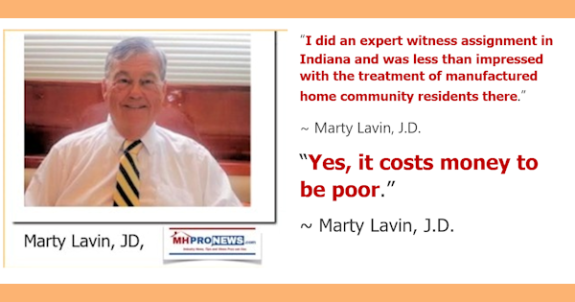
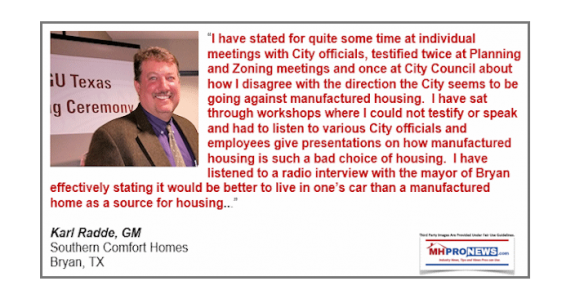
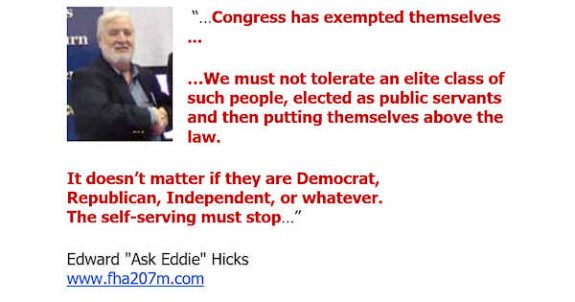
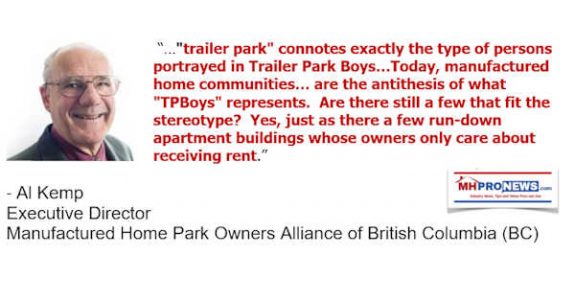
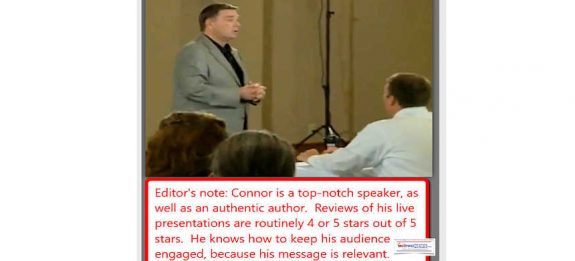
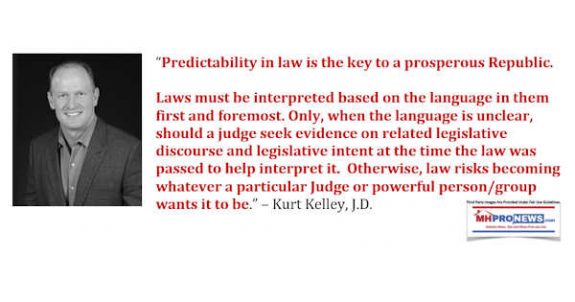
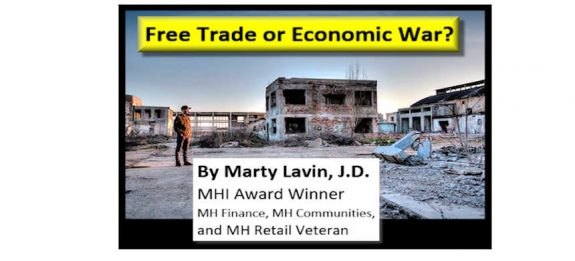
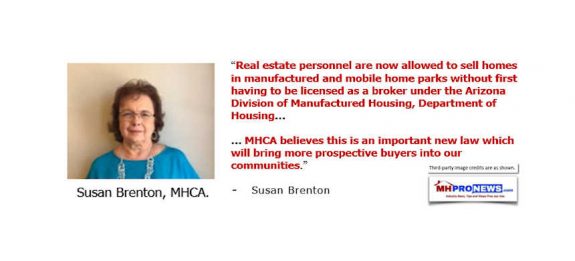
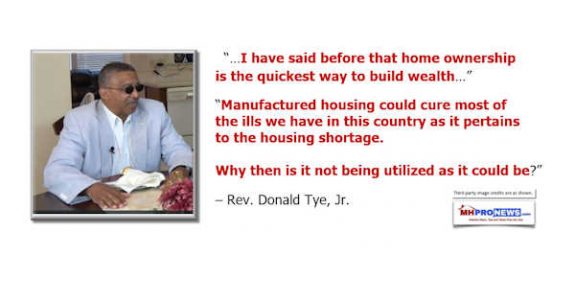
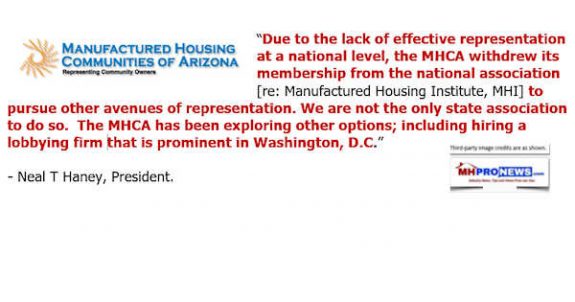
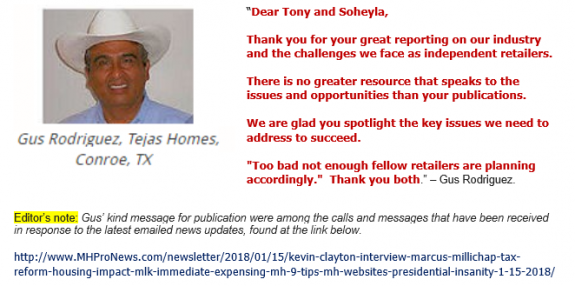
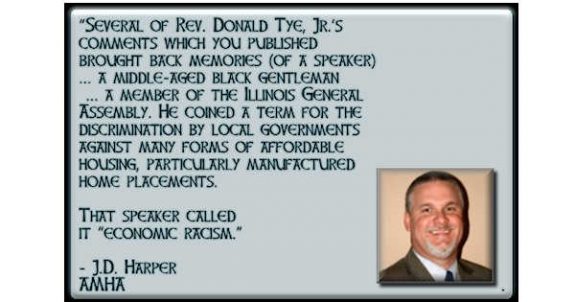
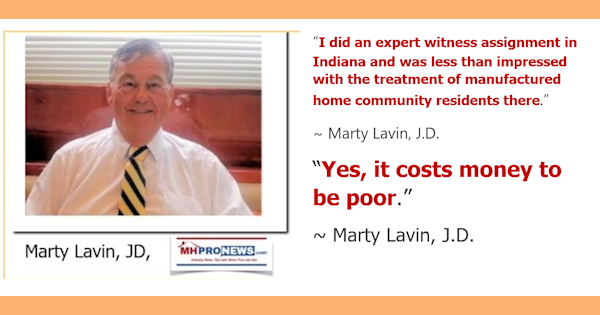
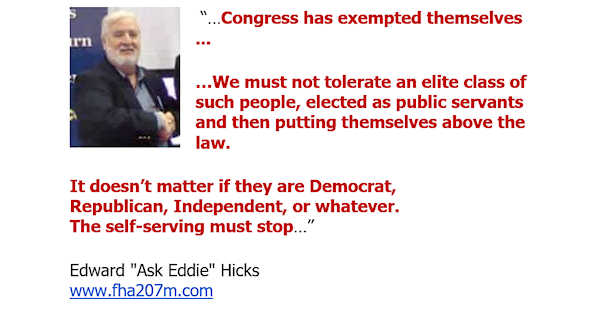
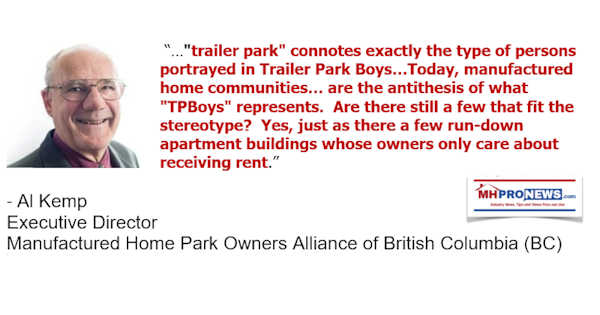
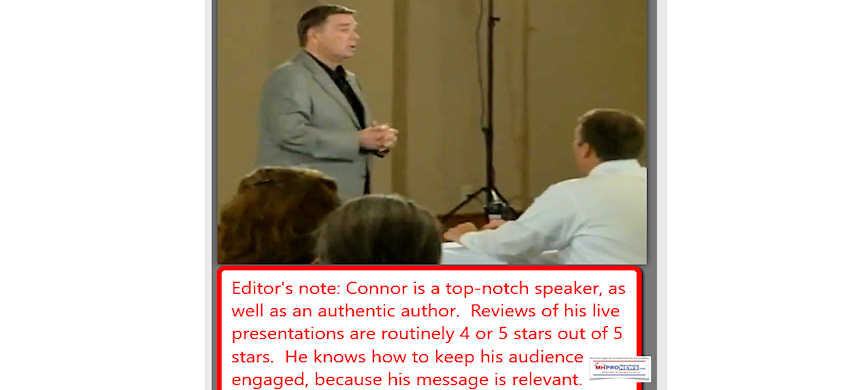
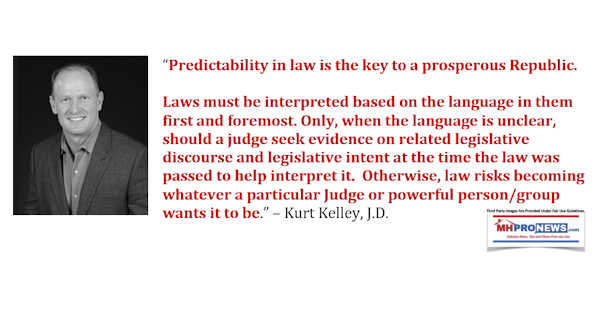
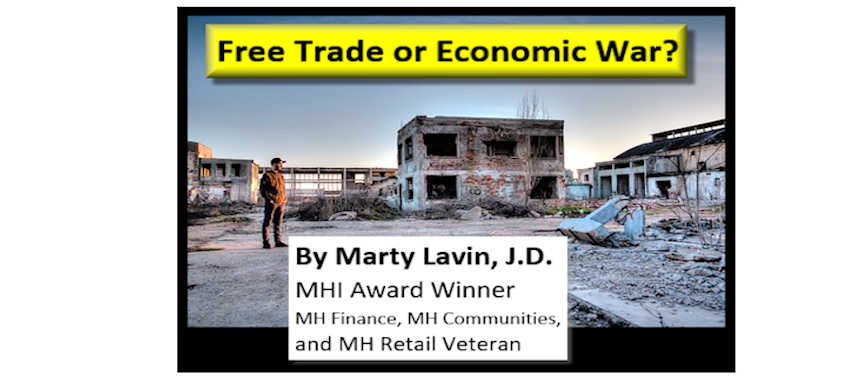
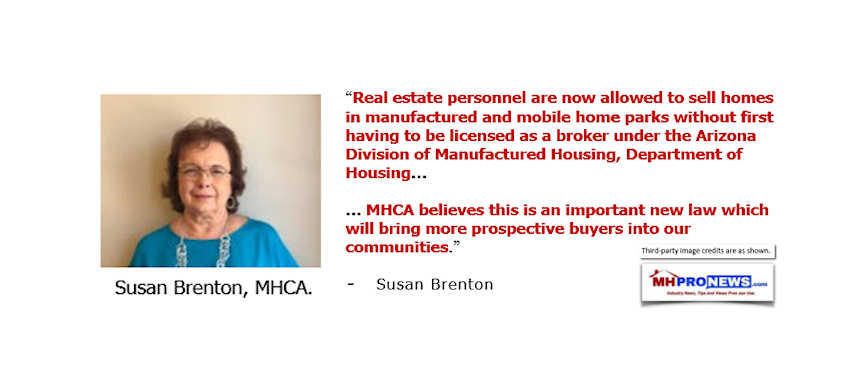
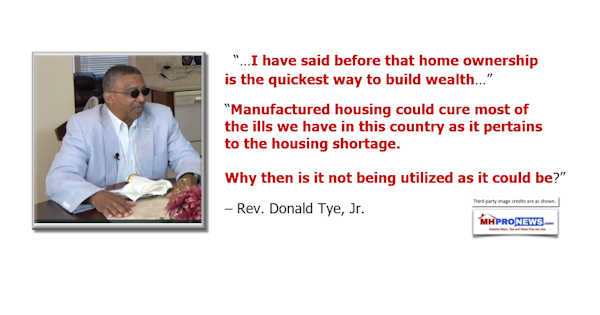
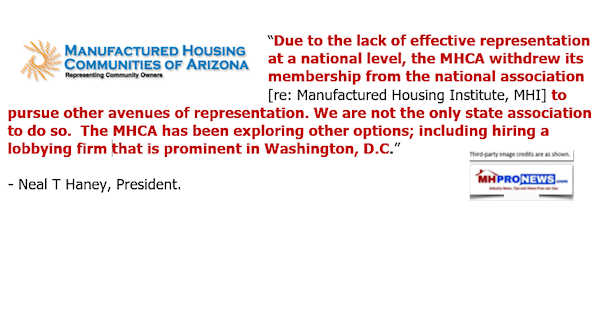
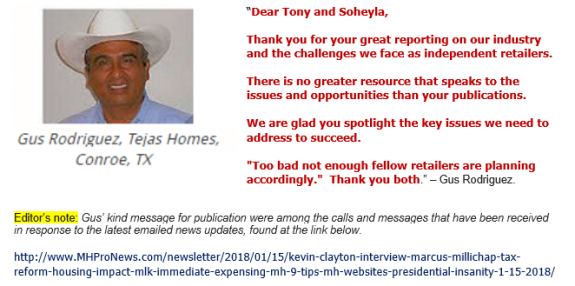
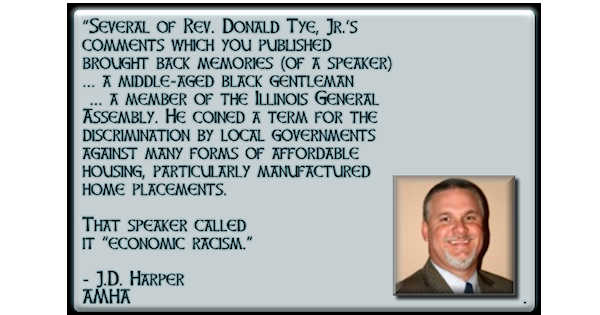
Karl Radde – TMHA, MHI, Southern Comfort Homes – Addressing Bryan City Leaders, Letter on Proposed Manufactured Home Ban
To All Concerned [Bryan City Officials, Others]: As the retail location referenced by Mr. Inderman, I would like to take a moment to address the …